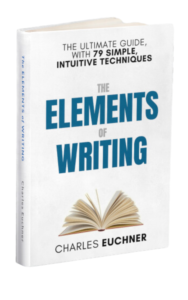Living in the Age of the Coronavirus, we lose touch with reality. We live in the “eternal present.” Isolated from normal activities and places—and restricted in our actions—we lose our outside reference points. We rely, more than ever, on the information and opinions of mainstream media, government officials, and (God forbid) social media.
That makes us vulnerable to gaslighting.
 That term, which comes from a 1938 play by Patrick Hamilton called Gas Light, refers to a deliberate process of making someone doubt their sense of reality. In the play, a husband drives his wife mad by manipulating minor elements of her environment—and then denies anything has changed. The man turns off the house’s gaslight at odd times and then, when his wife asks, denies there has been any change at all. When she asks about noises in the night—she heard him rummaging in the attic for the jewels of a woman he killed—he denies hearing any such sounds. Slowly, the wife goes mad. That was his goal since he seeks to have her institutionalized for insanity.
That term, which comes from a 1938 play by Patrick Hamilton called Gas Light, refers to a deliberate process of making someone doubt their sense of reality. In the play, a husband drives his wife mad by manipulating minor elements of her environment—and then denies anything has changed. The man turns off the house’s gaslight at odd times and then, when his wife asks, denies there has been any change at all. When she asks about noises in the night—she heard him rummaging in the attic for the jewels of a woman he killed—he denies hearing any such sounds. Slowly, the wife goes mad. That was his goal since he seeks to have her institutionalized for insanity.
Gaslighting is abuse. It’s a sadistic form of mind control. It aims not just to shape the way people think. It also aims to undermine people’s ability to trust their own perceptions and thinking.
“Gaslighters use your own words against you, plot against you, lie to your face, deny your needs, show excessive displays of power, try to convince you of ‘alternative facts,’ turn family and friends against you,” says Stephanie Sarkis, a psychotherapist and author. They revel in “watching you suffer, consolidating their power, and increasing your dependence on them.”
In a time of crisis and confusion, gaslighters fill the air with denials of simple reality (that the coronavirus is “just like” seasonal flu), false charges (that Democrats stoke fear of the virus to undermine the president), fake theories (like the coronavirus originated in a Chinese lab), offer false assurances (the virus will disappear “magically” and “it’s something we have tremendous control of”), sell sketchy remedies (like prescribing hydroxychloroquine, injections of disinfectants, or the use of ultraviolet light in the body), prevent people from getting the basic tools they need for gathering accurate data (like testing and tracing systems), and then deny basic facts including their own statements (“I felt this was a pandemic long before it was a pandemic”).
When gaslighters persuade even a small group of the population to believe propaganda, they undermine the very possibility of public debates with reliable information. When autocrats shout “Fake News!” at reporters and purvey thousands of lies on social media, their aim is not to win an argument. Their aim is to prevent a true argument even happening. Might makes right.
But listen up: You have the power to screen out the lies and deceptions. It takes hard work to find true experts, people with sterling reputations who display respect for facts. You need to give up your own desire for easy and quick answers. You need to accept the complexity of the situation and accept that even the smartest people cannot make reliable predictions in a volatile situation.
When you hear people making wild claims, which run counter to those of the experts, ask some simple questions:
• Does this person have training and expertise in the field? Does he have experience with the scientific issues at issue? Has he done research or worked on the front lines?
• Does he consider and acknowledge all of the facts, even the inconvenient ones? Does he avoid cherry-picking facts and claims to bolster his claims? Does he welcome new troves of data and information, even when they contradict his working theory of the issue?
• Does he avoid generalizations on topics that remain matters of serious debate? Does he avoid taking slivers of possible truths and pretending they are final and authoritative?
• Does he adopt a scientist’s mindset? Does he look for evidence against his hypothesis? Does he look for weak links in his own argument?
• Does he acknowledge mistakes when they occur? Does he adjust his thinking and actions when new information comes to light?
• Does he treat people with respect when they question his and others’ statements and records? Is he hungry for different perspectives on issues?
When you can answer “yes” to these questions, you can trust the source. Otherwise, remain wary and vigilant. Don’t get sucked into debates that do not respect facts or values.
It’s understandable why so many people fall for propaganda and false narratives. Most people want to believe the authority figures that they like and trust. We all want to belong to a larger tribe. We are social creatures. We want to fit in.
We also crave answers to complex questions. Given our limited time and expertise, we want to find a shortcut to understanding. We want to know when the pandemic will end. We want to embrace a model for understanding this nightmare.
So it’s understandable why people submit to false prophets and easy answers.
But if you fall for the fakery of the gaslighters—whether it’s the president or a propagandist on cable TV or a snake-oil salesman on Facebook—you will lose your sense of reality. You will forfeit your greatest power, which is the ability to think for yourself.


